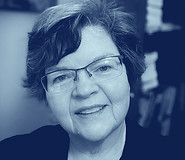Saturday, September 30th, 2023
11:00 AM to 3:20 PM Eastern 8:00 AM - 12:20 PM Pacific CA/USA 9:00 AM - 1:20 PM Mountain CA/USA 4:00 PM - 8:20 PM London, UK 5:00 PM - 9:20 PM Madrid, Spain 5:00 PM - 9:20 PM Berlin, Germany
Live Online via Zoom
Video via Home Study
(60 days access)
Psychologists, Social Workers, MFTs, LPCs, graduate-level Counselors, and Psychotherapists who are EMDR trained.
*Completion of an EMDRIA approved EMDR Basic training is required to attend this workshop.
Workshop Description
First responders are exposed to abnormal human experiences every day in their work in law enforcement, fire service, emergency medical service, 911 dispatch, and others. Their training helps them function in crisis situations, but even the most highly trained emergency workers have limited bandwidth for coping with these exposures. First responder culture often negatively affects the individual’s willingness to seek help until after a personal crisis or other consequences ensue. When they finally ask for or are sent for help, the treating psychotherapist must have cultural competence for the population to be effective.
EMDR therapy can be an ideal fit for first responders in that no homework is required and it is a more efficient form of treatment. First responders may come to treatment with most, if not all, readiness factors in place for EMDR therapy. This workshop will identify some of the cultural blocks to treating first responders, explore treatment planning from the Adaptive Information Processing model (AIP), outline treatment planning strategies, and provide strategies for overcoming blocks in processing.
Learning Objectives
Participants will be able to:
-
Identify at least three (3) elements of first responder culture that affect an individual’s ability to seek and accept help and appropriate therapist actions
-
2. Describe the Adaptive Information Processing model (AIP) and it’s use to conceptualize and treat first responders
-
3. Create an effective treatment plan based on the AIP for the use of EMDR therapy in treating first responders
-
4. Describe at least two (2) reprocessing strategies to overcome blocks in EMDR
The Envision Difference
100 % online: Develop your skills from the comfort of your home or office via Zoom.
Live Q&A: Ask Questions during the Live Q & A with the presenter and participants
60 Days access: Can't Attend Live? Watch Later. 60 days of access to the workshop recording and materials and receive a certificate with CEs for home study learning. *Exception applies, see CE section below
Workshop Schedule - Eastern Time (ET)
11 :00 am - 1:00 pm
-
First responder culture and cultural competence by the therapist.
-
Research on EMDR therapy with first responders.
-
Timing of EMDR therapy – is it appropriate now?
1:00 pm - 1:15 pm
-
Break
1:15 pm - 3:00 pm
-
AIP
-
Where to start?
-
Standard Protocol – the 8 phases, 3 prongs for first responders
-
Treatment planning options
-
Helpful preparation/resourcing
-
Possible blocks in reprocessing and strategies
-
Avoiding drift – fidelity matters
-
-
Recorded comments from actual first responders
3:00 pm - 3:20 pm
-
Q & A

About Julie Miller, MC, LPC, LISAC
Julie is an EMDRIA Approved Consultant and Certified EMDR Therapist in Tucson, Arizona. She is also a regional trainer for the EMDR Institute (emdr.com), and for Trauma Recovery/EMDR Humanitarian Assistance Programs (emdrhap.org), helping other mental health professionals learn the EMDR therapy approach. Julie is in private practice and specializes in complex trauma, addiction, and working with first responders. Julie holds a Master of Counseling degree from the University of Phoenix, and is dually-licensed in the State of Arizona as a Licensed Professional Counselor (LPC-10729) and Licensed Independent Substance Abuse Counselor (LISAC-1699). Julie has worked in private and public settings, including outpatient agencies, residential treatment centers, and psychiatric hospitals. Julie is a national and international presenter, having conducted trainings on topics such as EMDR and Complex Trauma, EMDR and Substance Abuse, Early EMDR Interventions, Motivational Interviewing, Drug Treatment, and EMDR with First Responders. Julie is a certified Telemental Health practitioner and a Certified Clinical Trauma Professional Level II.
Continuing Education (CE) Credits:
4 CE credits/contact hours awarded
*CE credits also available for the home study version!
See our FAQ section below for more information
American Psychological Association (APA)
Envision Counselling & Consulting, Inc. is approved by the American Psychological Association to sponsor continuing education for psychologists. Envision Counselling & Consulting, Inc. maintains responsibility for this program and its content.
Social Workers:
This program is Approved by the National Association of Social Workers (NASW) - Approval # 886910357-2181 - for 4 continuing education contact hours.
*Must attend live to receive NASW CEs. Application for CEs for the home study version will be submitted after the live event is over and therefore, CE credits for the home study version are not guaranteed. Participants should always check with their state’s licensure board regarding the acceptance of NASW CE credits.
National Board for Certified Counselors
Envision Counselling and Consulting has been approved by NBCC as an Approved Continuing Education Provider, ACEP No. 7241. Programs that do not qualify for NBCC credit are clearly identified. Envision Counselling and Consulting is solely responsible for all aspects of the programs.
Canadian Psychological Association (CPA)
Envision Counselling & Consulting, Inc. is approved by the Canadian Psychological Association to offer continuing education for psychologists. Envision Counselling & Consulting, Inc. maintains responsibility for the program.
EMDRIA
4 EC Program Approval Number: #18032-87 EMDRIA
Credit Provider: Envision (#18032) Eligibility for EMDRIA Credits is restricted to those who have completed an EMDRIA-Approved Basic EMDR Training.
Canadian Counselling and Psychotherapy Association (CCPA)
CCPA has reviewed and approved the content of this workshop for 4 CEC.
The BC Association of Clinical Counsellors (BCACC)
This workshop is eligible for 4 CE credits.
Please ensure to check with your individual state boards/regulatory body to verify Continuing Education Credit Hours requirements and if the workshop you are planning to take qualifies. Licensing Boards change regulations often and while we attempt to stay abreast of their most recent changes, if you have questions or concerns about a specific course meeting your specific board’s approval, we recommend you contact your board directly to obtain a ruling.

START LEARNING :
FAQ
Do I need to have completed EMDR Basic Training to attend?
Yes, you must have completed an EMDRIA-approved EMDR Basic Training to attend this workshop.
What are the requirements for obtaining CEs?
Participants must have paid the tuition fee, logged in at the start of the live interactive webinar and logged out at the end, and attended the entire webinar to receive a certificate. Failure to log in or out will result in forfeiture of credit for the entire webinar. No exceptions will be made. Partial credit is not available. Certificates will be available following webinar completion. If participants watch the recording (home study) version of the presentation, they will have access to Self-Study CE credits after completion of a short quiz.
Do I have to pay extra for CE credits?
No. The cost of CE credits is included with your workshop registration fee.
If I cannot attend live, can I still get CE credits?
Yes. You can access the recording in the home study version, watch it in its entirety, and then pass a quiz with a score of 75% or higher. After taking the quiz, you will be able to download a certificate as proof of completion.
How do I access the home study version when it becomes available?
You will be emailed 5 business days after the live event with instructions on how you can access Envision's online learning platform. Sign in to your online account: Locate the email and click on your personal sign-in link to set your password. You cannot locate the email we sent? Login directly through the platform. Copy and paste the link below into your web browser: https://on-demand.envisionworkshops.com/pages/home-page To login, use the email address you provided when you registered for the workshop. To create your password, click on "Forgot Password" and set up a password for your account. If you already have an account and password, use those credentials to login.
How long do I have to review the recording?
You will have 60 days to review the recording. The recording will be made available approximately (5) business days after the live workshop.
What is the refund policy?
Refunds on purchased tickets are available up until 15 days before the date of the live workshop. There is no refund after this date. Refunds will include the ticket price less a $50 processing fee for all refunds/price adjustments. *Prices subject to change. Refunds within 15 days of workshops will be in the form of a workshop credit. These credits do not expire. Please email registration@envisionservices.ca if cancellation is required.
If I have special needs or require accommodations, what do I do?
Email registration@envisionservices.ca at least five (5) business days prior to the live workshop to request accommodations or discuss your needs. Envision cannot ensure accommodations without adequate prior notification.
If I have a complaint or grievance, who do I contact?
Please email registration@envisionservices.ca. All grievances must be in writing and will be replied to within 5 - 10 business days.
Is there commercial support or a conflict of interest for this presentation?
Julie Miller receives a speaking honorarium from Envision. There are no known conflicts of interests or commercial support for this program. Envision does not receive any financial support for this presentation. Literature may be referred to during the presentation. Envision will not receive any book royalties and was not offered any financial incentives for the mention of those books. Please note that authors of these books will get a royalty from any sale made of their books as per their agreement with the publishing company. For more information on any potential conflict of interest or financial support, attendees may email Envision at registration@envisionservices.ca.




